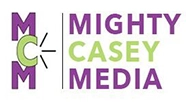My last two posts explored the question of the doctor/patient relationship in the context of romantic relationships. The first one asked if we were anywhere close to getting engaged, the second looked at the possibility that the whole enchilada needed some intervention-level relationship counseling. In the couple of weeks since, I’ve had some interesting digital and face to face conversations about digital communication tools, patient engagement, and the doctor/patient relationship that have led me to ask if the crop of EHR (Electronic Health Record) systems in current use across the land, as part of Obamacare’s drive toward healthcare system quality, safety, and access (or, as I like to put it, to the tune of “Old McDonald Had a Farm,” EHR, HIE, E-I-E-I-O!), aren’t analogous to online dating sites like Match.com. Which leads me to the observation that the EHR tech I see – all of it, from Epic to Practice Fusion to athenahealth to NextGen to Cerner – can in many ways be compared to Match.com. You put in personal data – name, personal details, outcome goals – and the technology (supposedly) helps you toward your goal. With EHR, that’s best-health, with Match.com, it’s a romantic relationship, but both take data input, digitize it, and claim to provide solutions based on that input. And I have to say that my observed success ratio on both EHR technology and online dating is similar. As in: mostly it feels like “failure to launch.” So … go grab a cup of coffee, or a bottle of water. This will be a lengthy look at that question, but I promise to bring it home with at least a couple of laughs along with my pointed observations. The leading lights of healthcare IT haven’t made the doctor-patient relationship any easier to create and maintain than Match.com has for romatic relationships. For every success story, there are hundreds (thousands? millions?) of…
Read More



